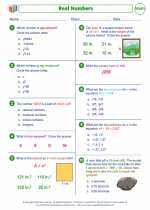Arithmetic Operators
Arithmetic operators are symbols used to perform basic mathematical operations in programming and mathematics. The main arithmetic operators are addition (+), subtraction (-), multiplication (*), division (/), and modulus (%).
Addition (+)
The addition operator is used to add two or more numbers together. For example:
5 + 3 = 8Subtraction (-)
The subtraction operator is used to subtract one number from another. For example:
10 - 4 = 6Multiplication (*)
The multiplication operator is used to multiply two numbers. For example:
3 * 5 = 15Division (/)
The division operator is used to divide one number by another. For example:
20 / 4 = 5Modulus (%)
The modulus operator returns the remainder of a division operation. For example:
10 % 3 = 1 (because 10 divided by 3 is 3 with a remainder of 1)Study Guide
- Understand the meaning and usage of each arithmetic operator.
- Practice solving simple arithmetic problems using these operators.
- Learn how to combine and use multiple arithmetic operators in an expression.
- Understand the order of operations (PEMDAS - Parentheses, Exponents, Multiplication and Division, Addition and Subtraction) when using multiple operators in a single expression.
- Practice solving word problems that involve arithmetic operations.
Understanding and mastering arithmetic operators is essential for solving mathematical problems and writing computer programs that involve mathematical calculations.
[Arithmetic Operators] Related Worksheets and Study Guides:
.◂Math Worksheets and Study Guides Eighth Grade. Real numbers
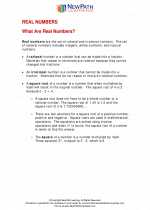
 Worksheet/Answer key
Worksheet/Answer key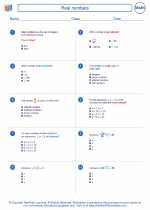
 Worksheet/Answer key
Worksheet/Answer key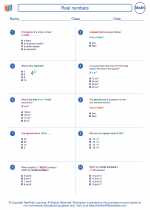
 Worksheet/Answer key
Worksheet/Answer key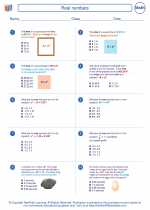
 Worksheet/Answer key
Worksheet/Answer key